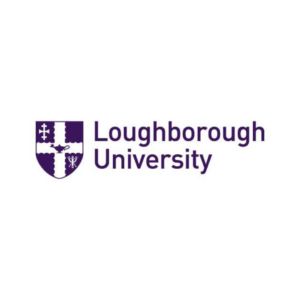Loughborough University is an internationally engaged research‐intensive university that delivers meaningful impact and keeps students at its heart. Loughborough is consistently ranked #1 worldwide according to QS for its international reputation in Sports Sciences. This included 5* for our research, with 90% of our research world leading or internationally excellent (REF 2021). The University has been awarded triple gold in TEF2023 the highest rating. We are consistently in the top 10 of all UK Universities according to all Guidelines and were voted as best University in the UK in 2022, with the best student facilities, high experience and satisfaction.
(https://www.lboro.ac.uk/about/achievements/)
Academic: GPA of 3.0 or above on their studies to date
English Language:
– IELTS: 6.5 (no subscores below 6.0)
– TOEFL iBT: 92 (no subscores below 22)
– Duolingo English Test: 120 (no subscore below 105)
Never had TB/TBC infection
30 September 2024 – 31 January 2025
Available Courses
Forces and the movement of mass; Newton’s laws of motion; Projectile motion; Impulse and momentum; Mass centre and balance; Segmental analysis and the principle of moments; Axes of rotation and moment of inertia; Angular momentum and torque; Potential energy, linear, and angular kinetic energy; Applications of biomechanics to technique in sport; Force and video data collection and analysis.
https://lucas.lboro.ac.uk/epublic/WP5015.module_spec?select_mod=23PSA902
Principles and patterns of normal childhood growth and development; growth and maturity related changes and variations in structure, function, composition and movement from conception to maturity; factors affecting growth; the impact of growth and development on training, selection, sport/physical activity participation.
https://lucas.lboro.ac.uk/epublic/WP5015.module_spec?select_mod=23PSA904
The policy process, policy theories, policy implementation and evaluation; case studies including elite sport policy, participation policy, physical activity and health policy.
The aims of this module are for students to develop a critical understanding of the policy-making process, policy analysis and associated tools, concepts and models in sport.
https://lucas.lboro.ac.uk/epublic/WP5015.module_spec?select_mod=23PSC903
Exercise in the management of specific diseases, including cardiovascular disease, cancer, metabolic syndrome, diabetes and obesity; Exercise in special populations such as young and older adults; Practical activities investigating determinants of health and their interaction with exercise.
The aim of this module is for students to demonstrate a more advanced and critical understanding of the physiological and metabolic underpinnings of exercise as a therapy to combat chronic metabolic disease.
https://lucas.lboro.ac.uk/epublic/WP5015.module_spec?select_mod=23PSC901
The aim of this module is for the student to understand the structure of the human body in relation to function with reference to musculoskeletal and nervous and integumentary systems.
Terminology and levels of organisation; tissue level of organisation; the integumentary system; musculoskeletal system; skeletal muscle anatomy and physiology; nervous system; brain and spinal cord; peripheral nervous system; general and special senses
https://lucas.lboro.ac.uk/epublic/WP5015.module_spec?select_mod=23PSA201
Genome structure including nuclear and organelle genomes and implications for regulation and variation.
Human Genome, structure and function including the Human Genome Project. Recombination and mobile gene elements, and their roles in genome function and evolution.
DNA polymorphisms. Types of DNA polymorphisms. Analysis of DNA polymorphisms.
Aggregation of genetic analysis systems and results to provide genomic information.
Factors affecting genetic variation in human populations. Analysis and quantification of genetic variation.
Methods of human gene mapping – genetic association and linkage analysis.
Genetic analysis of single gene disorders. Genomic analysis of complex disease.
Applications of the human genome. Uses and abuses of genomic research and its implications for society.
Cellular organelles linked to function. Cell membranes and mechanisms of transport into and out of the cell. Protein/membrane trafficking, including the transport of proteins. Extracellular matrix and cytoskeleton. Metabolic pathways, cellular energy transduction, major catabolic pathways in carbohydrate, fat and nitrogen metabolism. Control of the flux of materials through biochemical pathways including the role and function of enzymes. Structure and properties of amino acids and proteins. Proteins as enzymes and enzyme kinetics. The detailed content can be liable to change from year to year.
https://lucas.lboro.ac.uk/epublic/WP5015.module_spec?select_mod=23PSA602
Biochemical testing applications and specifications; Description and background of disease including symptoms, pathophysiology and outcomes; Details of laboratory testing for aiding in diagnosis, prognosis and treatment of diseases and disorders; Kidney disease; Electrolyte disorders; Liver disease; Endocrinology; Carbohydrate disorders; Cardiovascular disease; Toxicology and drug monitoring.
https://lucas.lboro.ac.uk/epublic/WP5015.module_spec?select_mod=23PSB901
Basic concepts of human growth & development including the growth curve, canalization, and catch-up growth; pre-natal growth, infancy, childhood, adolescence; genetic, endocrine, behavioural, and environmental influence on growth; assessment of growth using references and standard charts; skeletal maturity and secondary sexual development; growth and development epidemiology.
https://lucas.lboro.ac.uk/epublic/WP5015.module_spec?select_mod=23PSB903
Indicative topics to be covered include (but are not limited to): Philosophy of science, scientific psychology and hypothesis testing; research design; sampling; methods of data collection (quantitative and qualitative); quantitative data analysis (e.g. parametric and non-parametric tests, one-sample t-test, paired sample t-test and correlation); qualitative data analysis (template analysis, thematic analysis); interpretation of quantitative and qualitative data and the presentation of research findings.
The aim of this module is to provide students with core training in the theoretical and practical aspects of conducting both quantitative and qualitative research in psychology.
https://lucas.lboro.ac.uk/epublic/WP5015.module_spec?select_mod=23PSA520
The aim of this module is to provide students with an understanding of some of the central concepts, theories and studies related to the psychology of the early years.
The module considers a range of areas related to the psychology of the early years. These areas typically include: central theories in developmental psychology; the nature-nurture debate; cognitive development; play and socialisation; language and literacy development; attachment and deprivation; self and identity; attitudes, and social cognition; the research methods used to study the early years; and, cross-cultural influences.
https://lucas.lboro.ac.uk/epublic/WP5015.module_spec?select_mod=23PSA521
Energy balance and appetite regulation; child feeding problems; obesity; dietary restraint and disinhibited eating; biological, emotional, social and cognitive influences on appetite and food intake.
The overall aim of this module is to develop students’ understanding of human eating behaviour from a variety of perspectives. Beginning with an introduction to appetite regulation, this module will explore developmental, social, cognitive, and emotional factors associated with individual differences in eating behaviours in both adults and children.
https://lucas.lboro.ac.uk/epublic/WP5015.module_spec?select_mod=23PSC319

